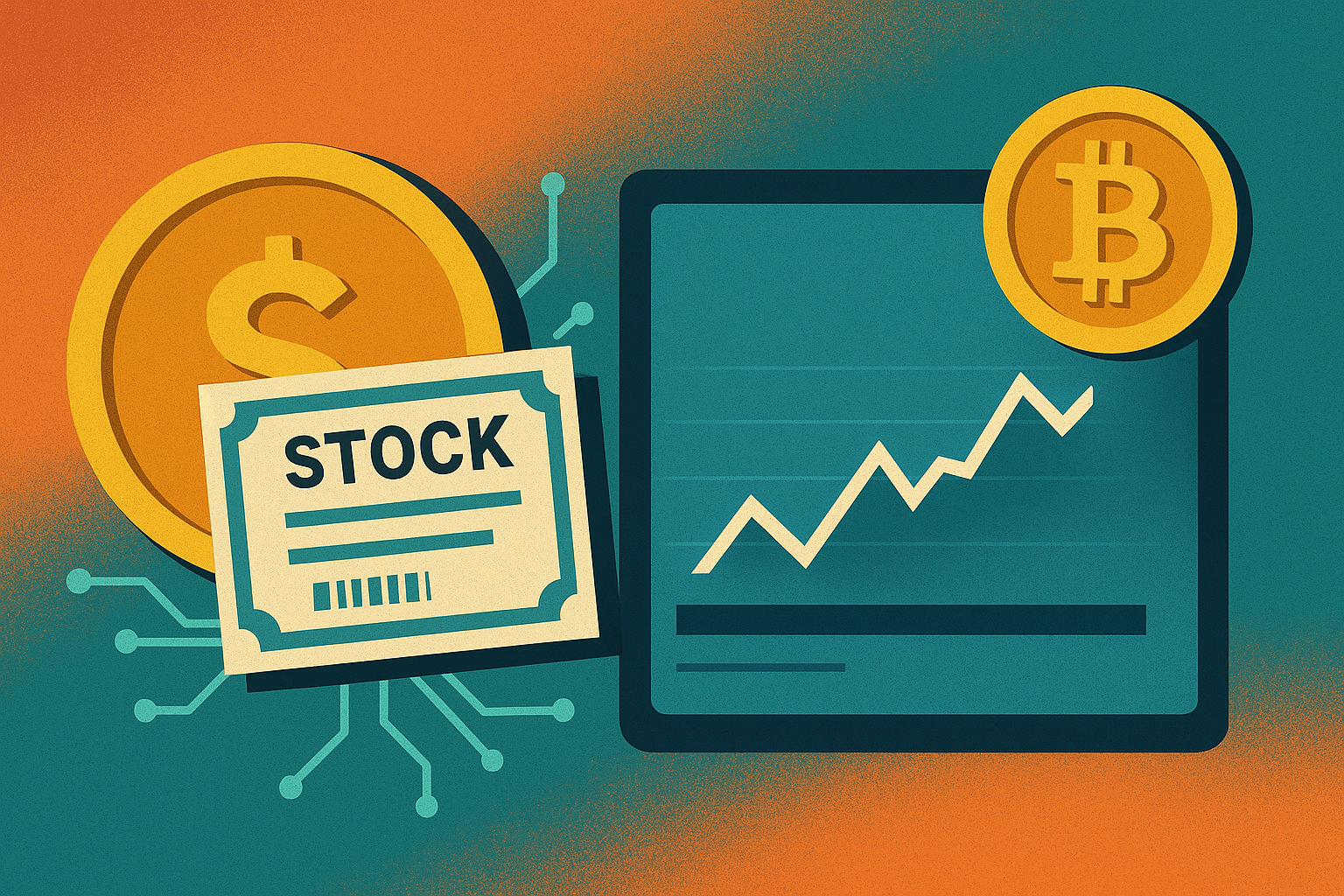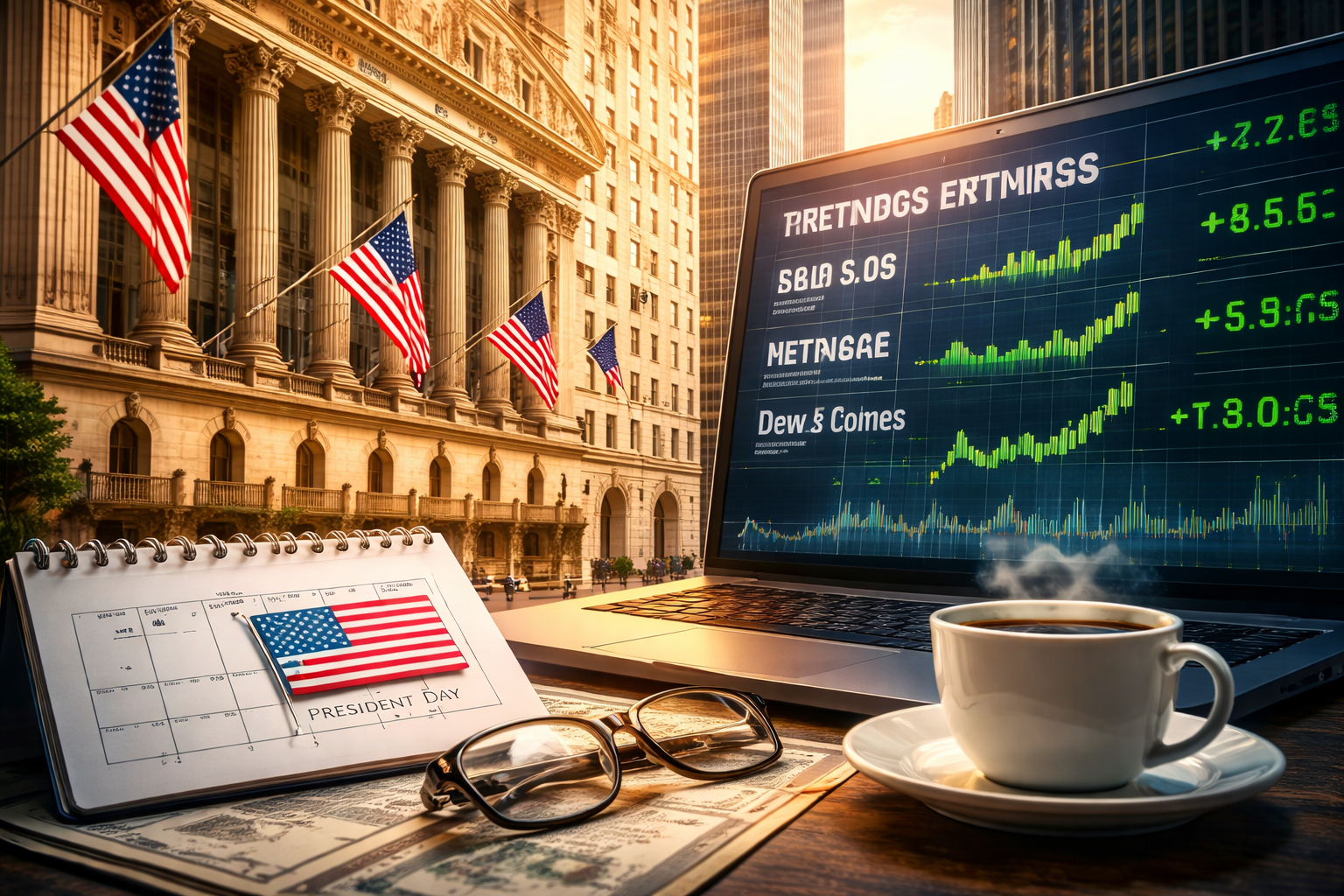The Next Frontier in Finance: When Stocks Go On-Chain
A quiet revolution is sweeping through global markets — and this time, it’s not about crypto coins but tokenized stocks. Major crypto firms are racing to digitize traditional equities into blockchain-based tokens that mirror real-world shares, a move that could transform how investors trade and hold assets.
According to a recent Reuters report, companies including Coinbase, Robinhood, and even Nasdaq are exploring tokenized stock offerings. These blockchain-based tokens, pegged 1:1 to real equities, promise round-the-clock trading, fractional ownership, and faster settlement. Yet, the rise of these products is sparking regulatory alarm — with financial watchdogs questioning whether investor rights and market stability are being adequately protected.
As the lines between traditional finance (TradFi) and decentralized finance (DeFi) blur, investors are facing both historic opportunities and untested risks.
Tokenization: Wall Street’s Next Disruption
Tokenization, the process of converting real-world assets (RWAs) like stocks, bonds, or real estate into digital tokens on a blockchain, is fast emerging as the next growth frontier in financial markets.
According to a Boston Consulting Group (BCG) report, the total market for tokenized assets could reach $16 trillion by 2030, fueled by institutional adoption and regulatory clarity. In Europe, where frameworks like the EU’s MiCA regulation provide a clearer path for digital securities, several pilot platforms — including Switzerland’s SIX Digital Exchange and Germany’s Boerse Stuttgart Digital — are already operational.
Meanwhile, in the U.S., crypto firms are moving more cautiously. Coinbase and Robinhood are reportedly developing internal teams to explore compliant structures for stock tokenization, while Nasdaq is studying blockchain-based settlement systems.
The allure is clear: tokenized equities can be traded 24/7, bypass intermediaries, and reach investors worldwide. They also allow for fractional ownership, enabling smaller investors to access high-value stocks like Tesla or Apple without the traditional brokerage barriers.
The Regulatory Red Flag
Despite the innovation buzz, regulators are warning of potential systemic and consumer risks.
Because most tokenized stocks are issued by third-party platforms rather than the companies themselves, questions arise about ownership rights, dividend entitlements, and voting access. In many cases, the underlying shares are custodied offshore, creating a legal gray zone if something goes wrong.
“Investors may think they own Tesla shares, when in fact they only hold tokens linked to someone else’s custodied stock,” said one analyst at Bloomberg Intelligence. “That creates counterparty and custody risks that traditional securities don’t have.”
The U.S. Securities and Exchange Commission (SEC) has yet to provide explicit guidance on tokenized equities, though Chair Gary Gensler has repeatedly emphasized that securities laws apply “regardless of the technology used.” Europe’s regulatory structure, while more advanced, still leaves gaps around cross-border trading and investor dispute mechanisms.
Why This Matters for Investors
For investors, tokenized stocks could democratize access to global equity markets and reduce transaction costs. But the regulatory uncertainty and lack of investor protection mechanisms make due diligence essential.
McKinsey & Company recently noted that while tokenization could unlock trillions in liquidity, early-stage projects often face “inadequate legal frameworks and insufficient institutional backing.” Without clear oversight, investors risk exposure to platform failures, mispricing, or liquidity mismatches.
The promise of 24/7 markets may also come with volatility risks, especially if tokenized versions of major stocks trade on platforms disconnected from traditional exchanges. Price divergence could become a real issue — one that traders and regulators have not yet fully modeled.
Future Trends to Watch
- Institutional Adoption of Regulated Tokenization:
Expect legacy players like Nasdaq, BlackRock, and Fidelity to develop regulated frameworks for tokenized trading, especially once global standards solidify. - Integration of Stablecoins and Digital Payments:
Tokenized assets will likely pair with stablecoins or central bank digital currencies (CBDCs) to enable instant, cross-border settlement. - Rise of Hybrid Platforms:
Traditional brokers may launch hybrid trading systems that allow simultaneous access to on-chain and off-chain markets — bridging retail and institutional liquidity. - Legal Clarity as a Catalyst:
The first jurisdictions to establish robust legal and investor protection standards (such as Switzerland or Singapore) may become global hubs for tokenized securities.
Key Investment Insight
For investors, tokenized stocks represent both a groundbreaking innovation and a high-stakes experiment. The potential upside — enhanced liquidity, accessibility, and diversification — is matched by regulatory and operational risks that remain unresolved.
Investors should treat tokenized assets as speculative exposure for now, allocating only small, risk-tolerant capital. Focus on platforms with licensed custodians, transparent auditing, and regulated partnerships. The long-term payoff will favor those who back early, compliant entrants rather than speculative issuers chasing short-term hype.
Stay Ahead with MoneyNews.Today
As blockchain technology continues to reshape capital markets, understanding where innovation meets regulation is essential. For daily, data-driven coverage of AI, crypto, and emerging markets — and what they mean for investors — stay connected with MoneyNews.Today, your trusted source for timely market intelligence.





